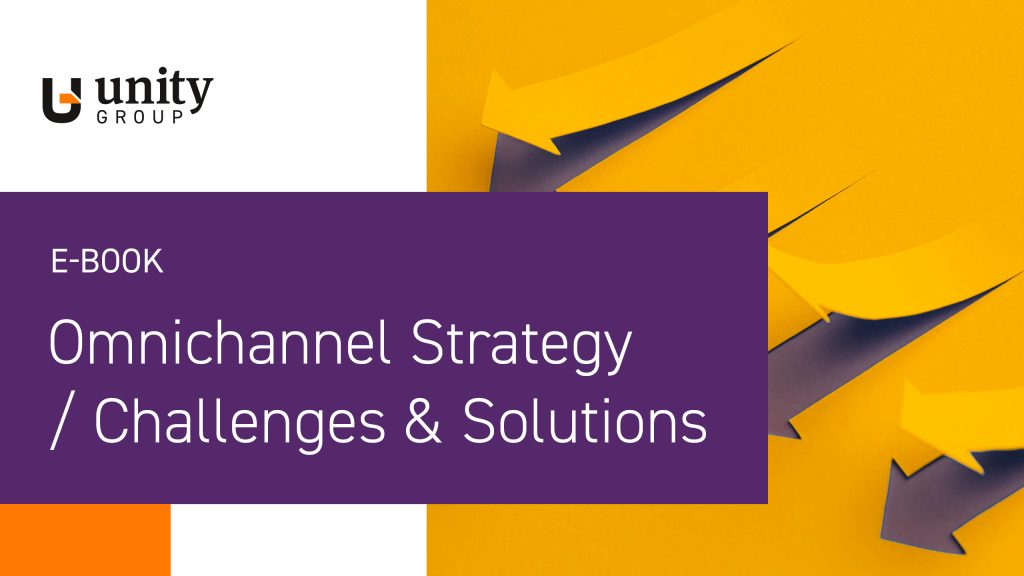Magento Pricing / How Much Does It Cost?
Magento 2 is one of the most popular e-commerce platforms worldwide. Thanks to its flexibility, it offers nearly unlimited customization possibilities to suit business needs in both B2C and B2B sectors. There are three versions of the solution available: Magento Open Source, Adobe Commerce, and Adobe Commerce Cloud, each differing in capabilities and implementation costs.
In this article, we will discuss various aspects of Magento costs, which are crucial for online store owners. Let’s find out how much a store on Magento prices!
Magento E-commerce Store Implementation Costs
Implementing an online store based on Magento can incur different costs depending on the scale of the business. Below are some key points to consider as they influence the cost of e-commerce system implementation.
Frontend Technology
Regardless of the chosen technology, you always have the option to customize the appearance of your store to meet your needs. However, if you decide to make significant changes related to the logic, layout, or technology, you should be prepared for increased implementation costs.
What are the options? We’ll start with what Magento offers by default, namely the basic native frontend layer with the somewhat outdated Luma technology. Staying with the native frontend, which is certainly attractive from a cost perspective, using Hyva could be a good solution. Hyva is a newer frontend technology based on Alpine.js and TailwindCSS. Hyva is an open-source solution, enabling you to fully customize the appearance and functionality of your Magento store.
Another option, the most expensive of the ones mentioned, is using a headless solution. The most popular and well-maintained by Adobe is PWA Studio with the Venia frontend based on React.
Integrations
When creating a new online store based on Magento, you want to automate as many business processes as possible. Integration with systems within your organization and other systems necessary for your Magento store’s operation will help. Such integrations will likely include connections with ERP, CRM, WMS, and PIM systems, payment systems, marketing automation, and analytics.

The scope and methods of integration you use when implementing Magento will impact the overall implementation budget. First, consider which processes you want or need to automate. Is it necessary for products in your e-commerce to be created automatically? Do you want orders placed by your customers to appear immediately in the ERP system? Or perhaps the rotation of products in your warehouse isn’t that high, and you have constant access to products, so synchronizing stock levels every 10 minutes isn’t as crucial for you? Each of these elements and the decision about the scope of integration will realistically impact not only costs but also the time required to implement Magento.
Integrations with external systems, such as payment gateways, couriers, or marketing tools, should be based on ready-made solutions offered by the community or commercial providers (often for free). In the Adobe Marketplace, you will find modules ready to be implemented with the most well-known payment operators – it is worth using these solutions to minimize the time and cost of e-commerce implementation.
Licensing
It is obvious that we also strive to limit ongoing costs related to licensing fees. The choice between Magento Open Source and Adobe Commerce presents exactly this question – which one to choose?
The answer is not simple. On one hand, Adobe Commerce is an annual license costing tens of thousands of dollars (depending on revenue), and on the other hand, the Open Source version is completely free. It’s always worth consulting this decision with your IT department, and if you don’t have one, reach out to specialists who have answered such questions before. They will advise you best and highlight the advantages of each solution.
Magento Hosting
Hosting is another component of the total Magento implementation costs. You must also remember that the implementation cost is just the tip of the iceberg, as there are ongoing maintenance and development costs after the implementation. Keep this in mind when choosing hosting for your store.
As previously mentioned, hosting should be tailored to your business and its scale. If it is a large, growing business, cloud hosting is a very good direction. If you are starting your e-commerce journey and don’t have a steady group of customers eagerly awaiting new products in your store, choose a slightly cheaper solution, such as a virtual dedicated server. Remember, there is always the option to change the chosen solution. If you feel that your business is growing rapidly, just contact specialists who will guide you step-by-step to migrate your e-business to the cloud.

Design
We’ve already discussed the frontend layer and technology; now it’s time to design how your Magento store will look. Here again, we have several options. The cheapest solution will be to customize one of the previously mentioned templates to match your company’s visual identity (corporate identity). While this approach may not make your store stand out, it will certainly save a lot of time and budget.
All large companies and those who want to stand out start with UX/UI design workshops before implementing Magento. Such workshops ensure that your e-commerce is adapted to current market trends and model the frontend layer to be convenient, clear, and most importantly, useful for your customers. This is undoubtedly the most expensive path, as designing itself is a tedious and sometimes lengthy process that generates the need for a series of changes in the Magento system. However, remember that these costs always pay off in the long run.
Functional Scope
We have reached an area that can be described as a bottomless pit, where the only limit is our imagination. The more ambitious our ideas, the larger our budget for implementing Magento will need to be.
Adobe Commerce and Magento Open Source are complete e-commerce systems that allow you to sell your products from the outset. But if that’s not enough for you, it’s best to start with a pre-implementation analysis before beginning your project. Magento specialists will surely conduct it in such a way as to tailor your new e-commerce to your organization’s needs.
During the pre-implementation analysis, it’s important to map your needs to how Magento works. This approach will certainly limit and reduce the costs of customizations needed in the project. Remember, Magento is open-source software, so you can create solutions tailored to your requirements. Don’t limit your creativity, but keep in mind that realizing ambitious ideas involves higher costs.
Migration
If you already have an e-commerce system but are looking for a better solution, you will certainly want to minimize the amount of work needed to transfer data from your current store to Magento.
This is another area that needs careful consideration, verification of the scale, and the amount of data to be transferred. If there is a lot of data, manual transfer is not a good idea. But if your current store has only a few CMS pages, it may not be worth writing a dedicated migrator that you will use only once. Maybe there is no need to transfer all your customers’ data, as you can ensure data consistency through integrations, and over time, customers will fill in the missing information themselves.

Why is it Worth Opening a Store on Magento?
Let’s take a closer look at what makes Magento stand out from the competition and why you should consider this platform for your online store.
Mature, Secure, and Stable Solution
Magento is a proven e-commerce platform used by over 250,000 companies worldwide. This impressive number attests to Magento’s versatility and popularity among diverse businesses conducting online sales. By choosing Magento, you can be sure that your store will operate on a solid and tested foundation.
Comprehensive E-commerce Support
Magento offers full support for all aspects of e-commerce, including the mobile version. With an extensive system of extensions and customization possibilities, Magento can handle even the most demanding sales processes. From product catalog management, handling various tax and pricing conditions, to full optimization of the purchasing process – Magento has everything you need.
Huge Growth Potential
Combining the knowledge of experts and the Magento community with hundreds of verified modules offers unlimited growth potential for your store. Regardless of the stage of your business development, Magento allows you to choose and implement the best solutions tailored to current needs.
Quick Time-to-Market
Thanks to open-source elements and ready-to-use modules, Magento significantly shortens the time needed to launch a store. This allows for faster market entry and focusing on key business areas rather than losing time on technical implementation aspects.
Easy Integration with External Systems
Magento offers simple integration options with various external systems, such as PIM, ERP, CRM, as well as social media platforms and price comparison sites. This ease of integration ensures operational consistency, increases efficiency, and enables the automation of many processes.
Advanced Marketing Tools
The platform has a wide range of marketing functionalities that directly impact conversion. Advanced tools for customer segmentation, offer personalization, product recommendations (up-selling, cross-selling), and SEO optimization effectively influence customer purchasing behavior and increase cart value.
Adaptation to B2B Sales Specifics
Magento also excels in the B2B environment. It offers dedicated features such as personalized catalogs and price lists for individual companies, quick ordering by SKU or CSV file import, and the ability to place orders based on previous transactions.
Easy Management of Multiple Stores
For companies with multiple brands or planning international expansion, Magento offers a multistore solution. This allows for managing several stores from a single administrative panel, significantly simplifying processes and reducing operational costs.
No Vendor Lock-In
Magento does not employ vendor lock-in practices, meaning you have full freedom in choosing service providers and can migrate your data without any obstacles. This flexibility gives you control over your business and allows for long-term cost optimization.
Magento – How Much Does It Cost to Implement an Online Store?
Implementing Magento 2 can be expensive, but the investment will pay off thanks to the advanced features and possibilities offered by this platform. It is crucial to plan the budget accurately, considering all potential costs, from licenses to maintenance and technical support.
It is worth investing in professional support from a technology partner and their advice based on experience to maximize the potential of your online store and achieve full success in e-commerce.








